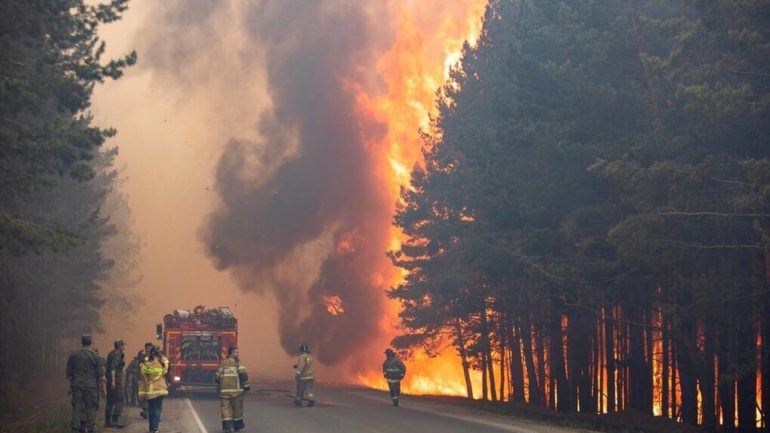In Yakutsk, in the Yakutia Republic in northeastern Russia, shaman traditions remain strong and many locals believe that nature is one living spirit which will always remain in harmony with man.
But Alexander Fyodorov, deputy director of the Melnikov Institute in Yakutsk, believes the fires of recent years prove this belief to be wrong.
"Nature reminds us (…) that we can not place all our hopes in it," he said, adding that "we must begin to prepare" for the effects of climate change.
"Nature reminds us (…) that we can not place all our hopes in it," he said, adding that "we must begin to prepare" for the effects of climate change.
Yakutia, a huge area with a lot few inhabitants, is in danger of being the first victim of global climate change, warns Fyodorov.
Already the average annual temperature in this region, which is one of the coldest on Earth, has increase by 3 degrees Celsius, at a time when temperatures around the world have risen by one degree Celsius since the beginning of the 20th century. This summer the temperature reached many days record of 39 degrees Celsius.
And while it is difficult to link fires directly to climate change, global warming and drought make them more likely and catastrophic, experts say.
This summer was the drier of the last 150 years, say the local authorities of Yakutia, and already from the fires have burned 15 million acres of forest.
"The current fires are breaking all records," said Alexander Isayev, a specialist at the Russian Academy of Sciences in Yakutia.
"The current fires are breaking all records," said Alexander Isayev, a specialist at the Russian Academy of Sciences in Yakutia. In France, where less than a thousand people live, exhausted firefighters and volunteers have taken on most of the firefighting work. ) from the federal budget for every half acre of land, a ridiculous amount. Consequently no one is going to put out fires raging far from residential areas.
"We do not have enough staff or resources for these fires. "We need funding," he said.
"We do not have enough staff or resources for these fires. "We need funding," he said.
According to the Russian Forest Service, more than 115 million acres have been reduced to ashes from the beginning of the year, compared to an average of 89 million burned annually in the early 2000s.
From Siberia to the Urals, Russia is facing "unprecedented fires," according to Gregory Kuksin. Greepeace of Russia, who believes that the phenomenon is "clearly due to climate change".
In the meantime, these fires release large amounts of carbon dioxide into the atmosphere, while destroying the trees that could absorb it, thus fueling climate change.
In the long run this could lead to melting of eternal ice, in which huge amounts of carbon dioxide and methane are trapped, a firebomb.
If these gases released into the atmosphere, "it will be dangerous for the whole world", Emphasizes Fiodorov.
